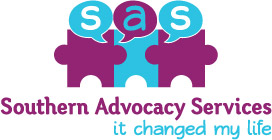It is time for Southern Advocacy to close its doors. Despite our best efforts, we no longer have the financial resources to continue our operations sustainably. We formally closed on 31st March 2025.
Over the years we have been lucky enough to meet some amazing people, including clients, family members, members of the public, committed staff/volunteers and a wide range of professionals, who we have been proud to work with since 2003.
However…..advocacy has NOT disappeared!
Best Interest Services based on the Isle of Wight is a team of professional independent advocates who have over 50 years combined experience ensuring that people's views are heard and their rights respected. They are passionate about empowering people; as they say, "Nothing about you, without you".
This is their website and contact details:
☎️ 01983 685594📩 info@bestinterestservices.co.uk
🌐 www.bestinterestservices.co.uk
If you require any information other than advocacy, please email me at janadvocate2025@gmail.com and I will do my best to assist you.
